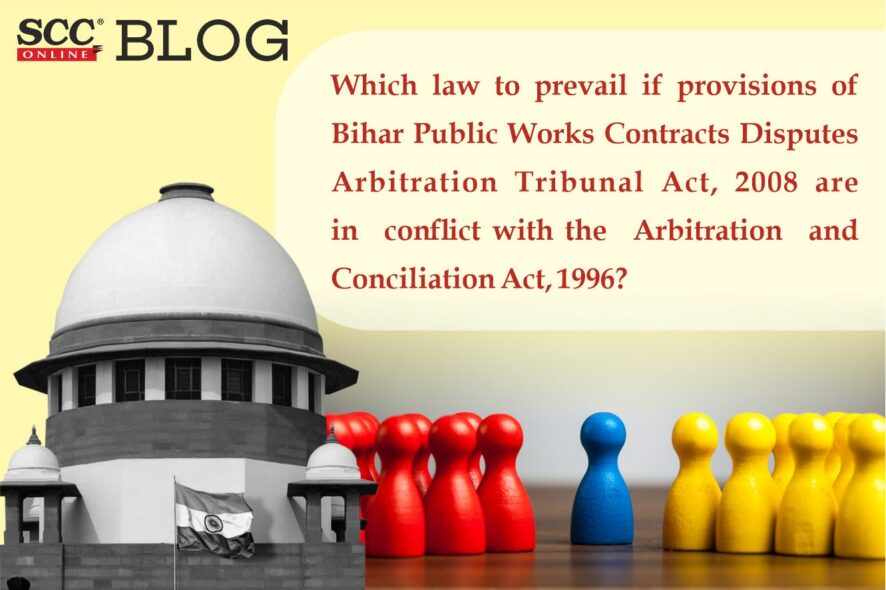Supreme Court: In a case where the bench of Ajay Rastogi and Abhay S. Oka, JJ was deciding an issue relating to Bihar Public Works Contracts Disputes, the bench has held that if any of the provisions of the Bihar Public Works Contracts Disputes Arbitration Tribunal Act, 2008 are in conflict with the Arbitration and Conciliation Act, 1996, the 2008 Act shall prevail to the extent of the conflict.
Relevant Provisions under the 2008 Act
Under Section 9 (1) of the 2008 Act, when any dispute arises between the parties to the contract, irrespective of the fact whether such contract does or does not contain an arbitration clause, either party can refer the dispute in writing in the prescribed form to the Arbitration Tribunal. The dispute can be referred within one year from the date on which the dispute has arisen.
Section 22 of the 2008 Act starts with a non-obstante clause which provides that notwithstanding anything contained in any other law, rule, order, scheme, or contract, any dispute as defined under section (e) of Section 2 shall be regulated by the provisions of the 2008 Act in the absence of an arbitration clause in the agreement.
In view of Section 8 of the 2008 Act, if any of the provisions of the 2008 Act are in conflict with the 1996 Act, the latter shall prevail to the extent of the conflict.
Analysis
In the case at hand, there was no arbitration clause in the agreement between the parties. The respondent, in the present case it was argued, did not refer the dispute to the Arbitration Tribunal within one year from the date on which the dispute had arisen as provided under Section 9(1) of the 2008 Act. The Arbitration Tribunal had condoned the delay.
Considering the provisions of both the Acts and also the facts of the case at hand, the Court observed that as there is no arbitration clause in the agreement between the parties, the provisions of the 1996 Act will have no application and the reference to the Arbitration Tribunal will be governed by the 2008 Act.
As the 2008 Act provides for a specific period of limitation, Article 137 of the schedule in the 1963 Act will not apply.
Further, under Section 18 of the 2008 Act, the Arbitration Tribunal has the power to condone the delay. Therefore, under Article 136 of the Constitution of India, the Court refused to interfere with the award on the ground that the reference was barred by limitation.
[Bihar Industrial Area Development Authority v. Rama Kant Singh, 2022 SCC OnLine SC 320, decided on 15.03.2022]
*Judgment by: Justice Abhay S. Oka
Counsels
For appellants: Senior Advocate Rajiv Dutta






